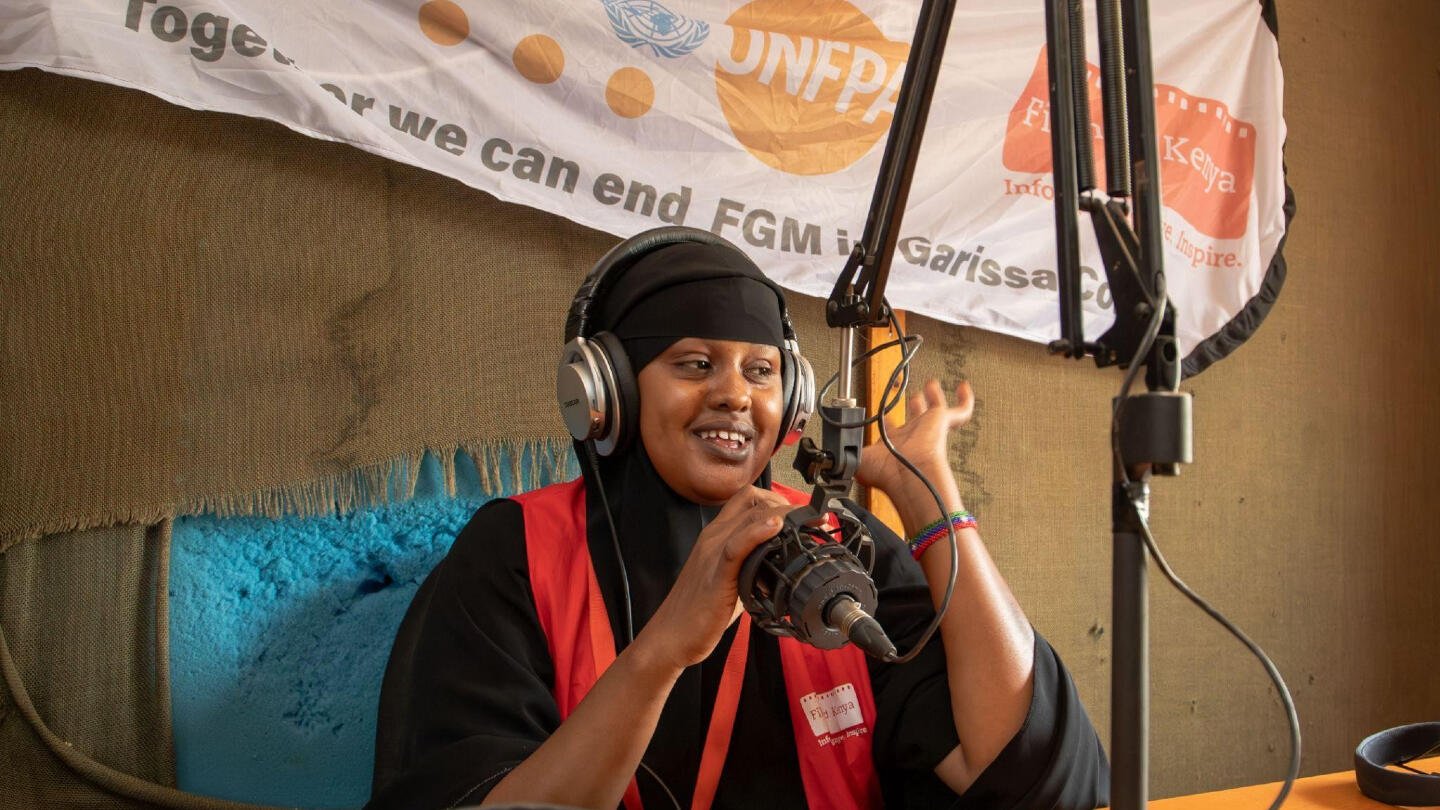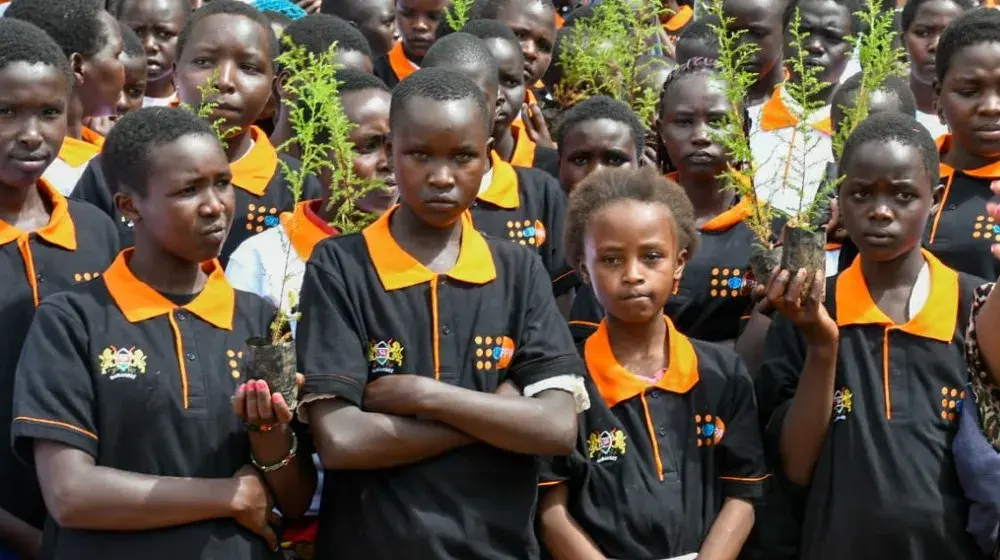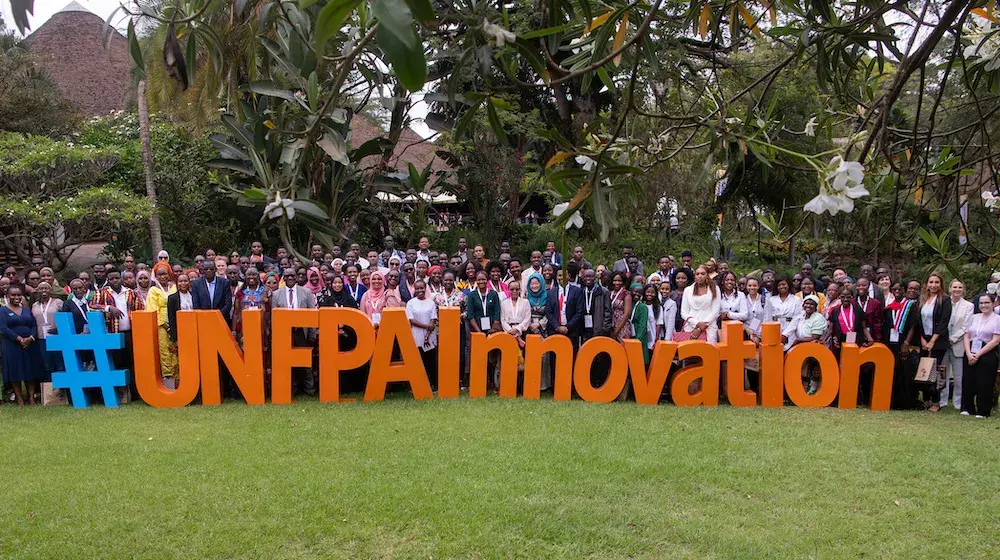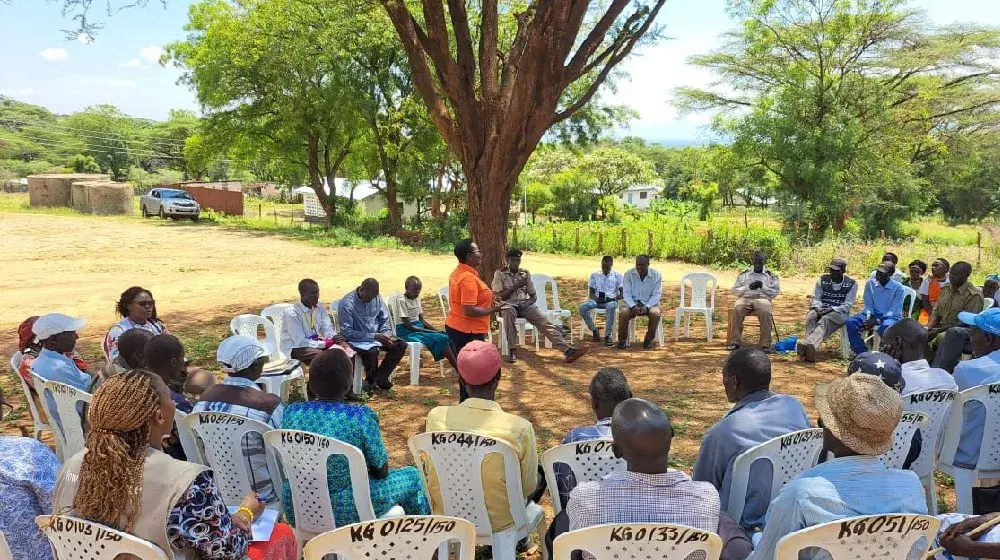In the heart of Dadaab Refugee Camp, northeastern Kenya, Sahara Muhumed is a beacon of hope. A Community Engagement Assistant with FilmAid Kenya, Sahara is spearheading efforts to dismantle the entrenched practice of Female Genital Mutilation (FGM) within her community. For generations, FGM has been a deeply rooted cultural tradition within the Somali community, perceived as a rite of passage for girls. However, the practice inflicts severe physical and psychological harm on women and girls, with lifelong and devastating consequences ranging from childbirth complications to diminished opportunities for education.
Daadab refugee camp is home to more than 400,000 refugees, a majority of whom are fleeing conflict in neighboring Somalia. Sahara, herself a refugee, is intimately aware of the challenges her community faces. She has taken on the daunting task of educating the community about the dangers of FGM and advocating for change. To tackle a practice shrouded by secrecy and silence, Sahara and the Filmaid Kenya team have leveraged the power of storytelling to educate the community on the dangers of FGM. With funding from UNFPA, Filmaid Kenya produces short films that depict the health risks and emotional toll of FGM, which are screened to the community to encourage open discussions on the issue. Radio programs that feature survivors, health experts, and local leaders further amplify these efforts with broadcasts that reach even the most remote parts of the expansive refugee camp.
Sahara often takes part in leading mobile caravans that conduct regular outreach at the Daadab refugee camp, blending traditional community forums with the power of storytelling and media. “There are moments when people question my intentions and integrity, as FGM is mostly viewed as an honored cultural practice” Sahara admits. “But I am driven by the belief that every girl deserves to live free from harm.”

In addition to public outreach through media channels, Filmaid Kenya is collaborating with organizations such as the Kenya Red Cross Society and the International Rescue Committee to strengthen referral pathways for women and girls, including survivors of FGM and gender-based violence. Community health promoters, trained under these initiatives, act as first responders, identifying vulnerable individuals and connecting them to these services. Sahara works closely with these health promoters to ensure that at-risk girls and survivors have access to medical care, psychological support, and legal assistance.
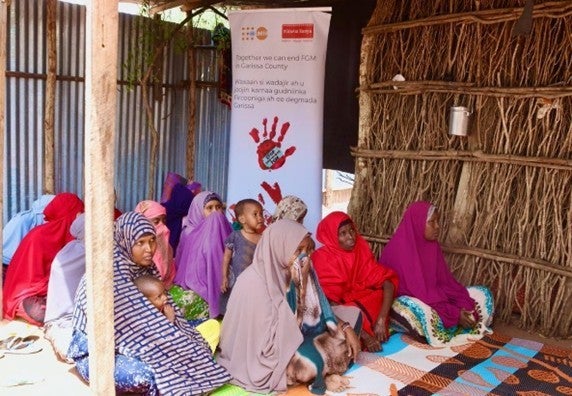
The impact of Sahara’s work is tangible. Fatima, a local elder, once a staunch supporter of FGM, now advocates against the practice. “I used to think it was essential for my daughters,” she shares. “But now, I see how it harms them. I want my grandchildren to grow up free from this pain.” Schools in Dadaab are also becoming hubs for change, integrating FGM awareness into their curricula. Younger generations are also becoming more engaged through short films, which encourage them to stand up against harmful traditions.
“The discussion around FGM is challenging,” Sahara acknowledges. “But with every conversation, every story shared, we move closer to a future where every girl can thrive without fear.”

